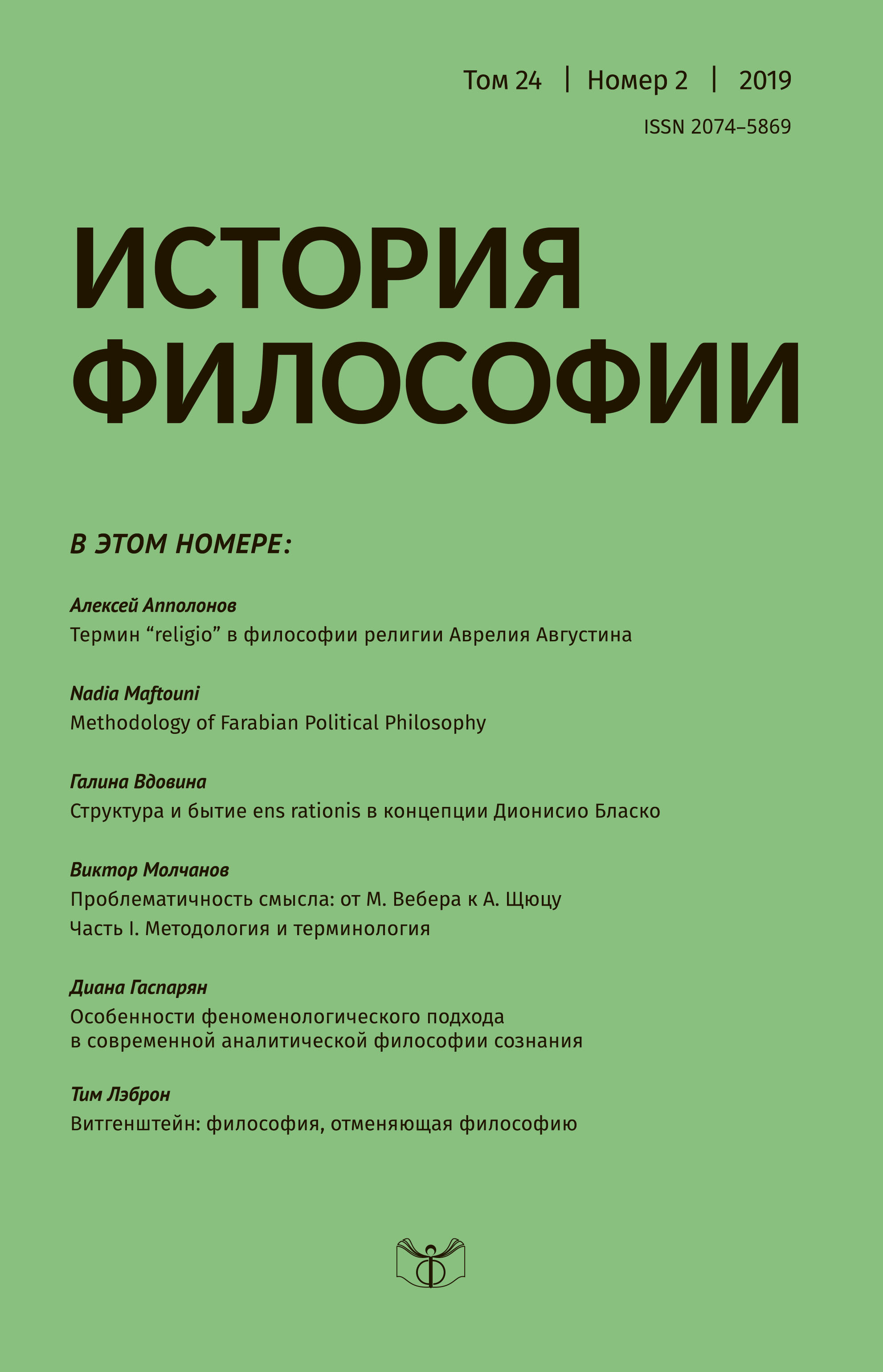Problematical Character of Sense. From M. Weber to A. Schutz. Part I. Terminology and Methodology
DOI:
https://doi.org/10.21146/2074-5869-2019-24-2-63-77Keywords:
sense, experience, methodology, term, social action, understanding, timeAbstract
In this paper the functioning of the term “sense” (Sinn) in the methodological foundations of
A. Schutz’s phenomenological sociology, M. Weber’s understanding sociology and E. Husserl’s phenomenology of consciousness is considered. Terminological analysis is combined in the article with
conceptual analysis. The introduction of the terms “meaning” and “time” is considered, as well as
the attempt of their conceptual connection on the basis of Husserl’s phenomenology of time in the first
major A. Schutz’s work “Meaningful structure of the social world”. The justification of the application
of Husserl’s and Bergson’s teachings on time to the concept of action and sense of action in sociology is
analyzed. In the first part of the paper firstly, the question of the connection between meaning, experience
and understanding in Sсhutz, Weber and Heidegger is discussed. Secondly, the starting point of
Sсhutz’s research is considered, i.e. the concept of sense in M. Weber. The main Weber’s distinction
between actual or empirical sense and pure sense as an ideal type is analyzed. Thirdly, the issue of the
incomplete certainty and contingence of social actions is discussed and an analogy between the functioning
of the terms “sense” and “time” in philosophical conceptions is drawn.

